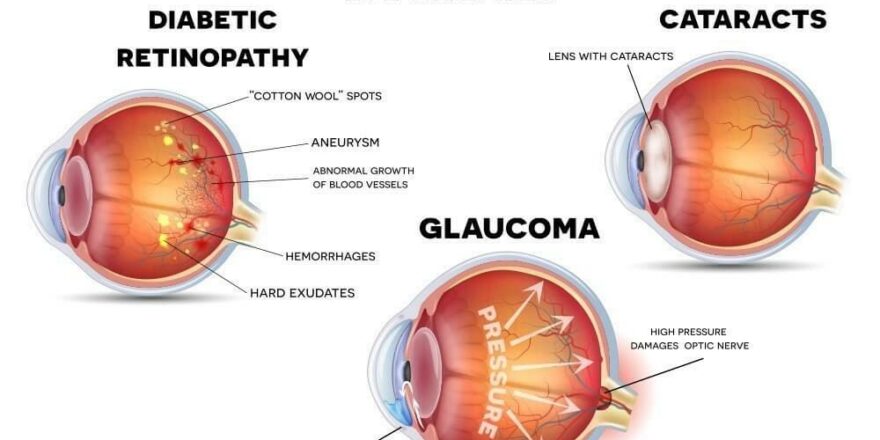
Diabetes and sleep are very closely connected, and many people with type 2 diabetes experience poor sleep quality or insomnia.
Approximately one in two people with type 2 diabetes have sleep problems due to unstable blood sugar levels and accompanying diabetes-related symptoms, High blood sugar (hyperglycemia) and low blood sugar (hypoglycemia) during the night can lead to insomnia and next-day fatigue. Stress and depression related to having the disease called diabetes can also lead to sleep disturbances.
When one’s blood sugar levels are high, the kidneys overcompensate by causing one to urinate more often. During the night, these frequent trips to the washroom may lead to disrupted sleep. High blood sugar can also cause headaches, increased thirst, and tiredness that can interfere with falling asleep during the night
Also, going too many hours without eating or taking the wrong balance of diabetes medication can also lead to low blood sugar levels at night, thus leading to nightmares, break out into a sweat, or feel irritated or confused when one wakes up.
Having poor sleep or less restorative slow-wave sleep has been linked to high blood sugar levels in people with diabetes and prediabetes. Sleep restriction affects blood sugar levels due to its effects on insulin, cortisol, and oxidative stress.
Most diabetic patients report sleeping less than six hours or more than eight hours a night, which puts them at a higher risk of having elevated blood sugar levels. In addition to raising blood sugar levels in people who already have diabetes, sleep deprivation also raises the risk of developing insulin resistance also.
Sleep deprivation raises the level of ghrelin, the hunger hormone, and decreases levels of leptin, the hormone that makes us feel full. In order to compensate for lower energy levels, people who sleep poorly are more likely to seek relief in foods that raise blood sugar, thus putting them at risk of obesity, which is a risk factor for diabetes.
Sleep Apnea
Sleep Apnea tends to increase insulin resistance, which is quite common in people who are overweight and obese. Thus, leading to impaired glucose metabolism.
How can a Diabetic Rehabilitation Program help one overcome their sleep disturbances occurring due to diabetes?
A Diabetes Rehabilitation Specialist can help a diabetic in order to manage one’s sleep disorders. A thorough examination of one’s sleep pattern along with blood glucose monitoring and assessment will help in creating a customised Diabetic Rehabilitation Program. Thus, one must consult their Diabetic Rehabilitation Specialist in order to overcome their sleep disturbances due to Diabetes.




